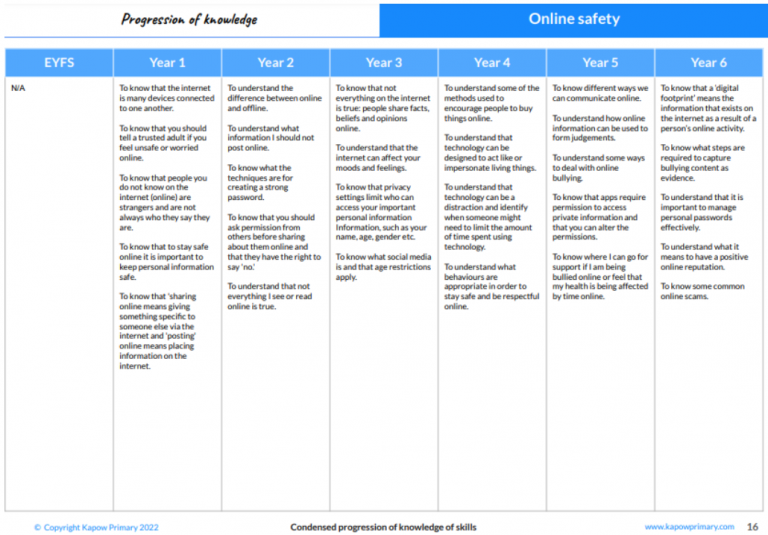Studying Computing at BFPA
Key skill: Online Safety and Digital Literacy
The computing curriculum at BFPA aims to instill a sense of enjoyment around using technology and to develop pupil’s appreciation of its capabilities and the opportunities technology offers to create, manage, organise and collaborate. We aim for children to develop confidence when encountering new technology which is so important in the ever evolving and changing landscape of technology. Through our curriculum, we intend for our children not only to be digitally competent and have a range of transferable skills at a suitable level for future education and workplaces but also to be responsible online citizens.
Our aim is that children who leave our school in Year 6 will be able to:
- Design, write and debug programs that accomplish specific goals.
- Use logical reasoning to explain how some simple algorithms work and be able to detect and correct errors in algorithms and programs.
- Understand computer networks including the Internet.
- Select, use and combine a variety of software (including Internet services) on a range of digital devices.
- Design and create a range of programs, systems and content that accomplish given goals.
- Collecting, analysing, evaluating and presenting data and information.
- Use technology safely, respectfully and responsibly, recognising acceptable and unacceptable behaviour.
- Know a range of ways to report concerns and inappropriate behaviour.
How our children learn Computing
Every year, our children complete a unit of work on digital literacy and learn about it using our chromebooks and iPads. The children do this through a scheme of work that covers computer science, information technology and digital literacy, equipping them to use computing in their own life through project based learning such as ‘video trailers’ and ‘investigating weather’. Our Real LiFE curriculum supports genuine cross-curricular learning and the development of transferable skills.
Our curriculum is organised into five key areas, creating a cyclical route through which pupils can develop their computing knowledge and skills by revisiting and building on previous learning:
- Computing systems and networks
- Programming
- Creating media
- Data handling
- Online safety
In order to keep our children safe we teach Online Safety lessons once every half term. For EYFS this covers:
- Self-Image & Identity
- Online Relationships
- Online Bullying
- Managing Online Information
- Health, Wellbeing & Lifestyle
- Privacy & Security
For Years 1-6 this covers:

Our children use innovative apps and software to create and design games, create stop motion animation and program music amongst other exciting projects. Our children leave Braunstone Frith Primary Academy as computer literate, switched on learners.
